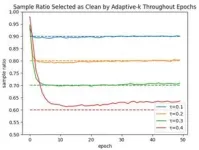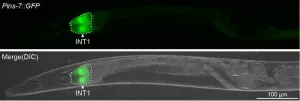(Press-News.org) A recent study has explored the legal and ethical challenges expected to arise in human brain organoid research.
Human brain organoids are three-dimensional neural tissues derived from stem cells that can mimic some aspects of the human brain. Their use holds incredible promise for medical advancements, but this also raises complex ethical and legal questions that need careful consideration.
Seeking to examine the various legal challenges that might arise in the context of human brain organoid research and its applications, the team of researchers, which included a legal scholar, identified and outlined potential legal issues. Notably, the study has evaluated the urgency of these issues, thereby establishing regulatory priorities for the future. The complexities involved in this area have often been overlooked, making this study a crucial step forward.
Legal challenges were categorized into five key themes: consciousness, legal status, consent, ownership, and transplantation. One of the most debated concerns is whether human brain organoids could become conscious. This raises profound ethical and legal questions, even though the realization of such concerns may be distant. The researchers explored the legal implications of different levels of consciousness—from basic sensory experiences to more advanced cognitive functions—suggesting that future legal protections might be necessary.
Another important consideration is the legal status of human brain organoids, which are currently regarded as property, similar to other human-derived materials. However, as research advances, the potential for brain organoids to be integrated into information processing systems and other applications could challenge this classification, possibly leading to discussions about legal personhood.
Consent and ownership also pose unique and pressing challenges. The researchers emphasized the need for appropriate and specific consent from cell donors, especially given the sensitive nature of the research. Ownership disputes may arise as donors might feel a personal connection to the brain organoids or perceive them as belonging to them, particularly as the monetary value of brain organoids increases.
Finally, transplantation of human brain organoids into animals and potentially humans raises another set of ethical and legal issues. Ensuring the welfare of host animals is an urgent concern requiring stringent regulation. In the distant future, addressing the consciousness and welfare of transplanted brain organoids may also be significant concerns.
“Our main finding is that we have, for the first time, thoroughly categorized the legal challenges associated with human brain organoid research on a global scale,” says Dr. Tsutomu Sawai, one of the researchers. This categorization is a significant step toward developing a comprehensive legal framework to improve the research environment for brain organoids.
Looking to the future, the researchers aim to use their findings to guide regulatory action and policy, ensuring responsible and ethical advancement in the field. They encourage public engagement and discussion, emphasizing that diverse perspectives are essential for navigating the complex ethical dimensions of this research. “The results of this research have the potential to bring various benefits to society. While the issues may be complex, we encourage the public to engage with our work, understand the ethical dimensions, and participate in discussions where appropriate,” Dr. Sawai added. “Contributions from different perspectives are essential for the responsible advancement of science.”
END
Legal challenges in human brain organoid research and its applications
2024-08-22
ELSE PRESS RELEASES FROM THIS DATE:
The changes to cell DNA that could revolutionise disease prevention
2024-08-22
University of Queensland researchers have discovered a mechanism in DNA that regulates how disease-causing mutations are inherited.
Dr Anne Hahn and Associate Professor Steven Zuryn from UQ’s Queensland Brain Institute said the findings could provide a promising therapeutic avenue to stop the onset of heritable and age-related diseases.
“Mitochondrial DNA is essential for cell function,” Dr Hahn said.
“But as we age it mutates, contributing to diseases ...
Gut molecule slows fat burning during fasting
2024-08-22
LA JOLLA, CA—In a struggle that probably sounds familiar to dieters everywhere, the less a Caenorhabditis elegans (C. elegans) worm eats, the more slowly it loses fat. Now, scientists at Scripps Research have discovered why: a small molecule produced by the worms’ intestines during fasting travels to the brain to block a fat-burning signal during this time.
Although the exact molecule they identified in the worms has not yet been studied in humans, the new work helps scientists better ...
The Lancet Public Health: Climate change and ageing populations to drive greater disparities in deaths from hot and cold temperatures across Europe, modelling study suggests
2024-08-22
Modelling study using data on 854 European cities is the first to estimate current and future deaths from hot and cold temperatures at this level of regional detail for the entire continent.
Study suggests existing regional disparities in death risk from hot and cold temperatures among adults will widen in the future due to climate change and ageing populations.
A slight decline in cold-related deaths is projected by 2100, while deaths from heat will increase in all parts of Europe, most significantly in southern regions. Areas worst affected will include Spain, Italy, Greece and parts of France.
Currently, around eight times ...
Suicide rates among doctors have declined, but female doctors still at high risk
2024-08-22
Suicide rates among doctors have declined over time, but are still significantly higher for female doctors compared with the general population, finds an analysis of evidence from 20 countries published by The BMJ today.
The researchers acknowledge that physician suicide risk varies across different countries and regions, but say the results highlight the ongoing need for continued research and prevention efforts, particularly among female physicians.
According to some estimates, one doctor dies by suicide every day in the US, and ...
New study provides further support for psilocybin’s potential to treat depressive symptoms
2024-08-22
High doses of psilocybin - the active ingredient in magic mushrooms - appears to have a similar effect on depressive symptoms as the selective serotonin reuptake inhibitor (SSRI) drug escitalopram, suggests a systematic review and meta-analysis published in The BMJ today.
The findings show that patients treated with high dose psilocybin showed better responses than those treated with placebo in antidepressant trials, although the effect size was small.
The researchers point out that flaws in study designs may have overestimated the effectiveness ...
Calls for cold water swimming to be made safer for women
2024-08-22
Cold water swimming is growing in popularity amongst women, but more support is needed to make many wild swimming sites in the UK safer and more accessible, finds a new study led by UCL researchers.
The research, published in Women’s Health, explored the habits of women who enjoy cold water swimming and was carried out in collaboration with researchers from the University of Portsmouth, University of Sussex, University Hospitals Sussex NHS Foundation Trust, University of Plymouth and Bournemouth University.
The team surveyed 1,114 women in the UK aged 16 to 80 years ...
Wounds are common among people who use illicit opioids, but proper wound care is hard to find
2024-08-22
The animal tranquilizer xylazine is increasingly found in the illicit opioid supply nationwide, leading to severe wounds among people who use drugs. New research led by a University of Pittsburgh physician-scientist and published in Drug and Alcohol Dependence seeks to understand wound care experiences of this population.
A cross-sectional survey of people who use drugs identified through three syringe service providers in Massachusetts found the vast majority had experienced xylazine wounds in the prior year. As the need for comprehensive, low barrier wound care grows, access to such care continues to lag behind the demand. As a result, these wounds often lead to serious ...
Even as COVID raged, spikes in homicide were a significant drag on life expectancy for Black men
2024-08-22
MADISON — While the COVID-19 pandemic quickly reversed decades of progress in closing the gap between life expectancies for Black and white people in the United States, the disease’s toll may have obscured the impact of another significant public health concern — a sharp increase in homicide rates — on the life expectancy of Black men, according to researchers at the University of Wisconsin–Madison.
In 2019, Black men in the U.S. were expected to live an average of 71.4 years, ...
MD Anderson receives over $21.4 million in CPRIT funding to support research and launch new core facilities
2024-08-22
HOUSTON ― The University of Texas MD Anderson Cancer Center today was awarded nine grants totaling over $21.4 million from the Cancer Prevention and Research Institute of Texas (CPRIT) in support of two new core facilities, faculty recruitment and groundbreaking cancer research across all areas of the institution.
“We are enormously appreciative of CPRIT’s support of impactful cancer research initiatives at MD Anderson,” said Peter WT Pisters, M.D., president of MD Anderson. “These new core facilities will help advance important areas of research in spatial biology and decision ...
Lehigh University is a core institution of new $26 Million NSF Engineering Research Center
2024-08-21
The U.S. National Science Foundation (NSF) has awarded $26 million to establish a new Gen-4 Engineering Research Center (ERC) named Environmentally Applied Refrigerant Technology Hub (EARTH) to create a sustainable and circular refrigerant economy.
The University of Kansas is the lead institution, joined by partners at Lehigh University, University of Notre Dame, University of Maryland, University of Hawai'i and University of South Dakota. David Vicic, the Howard S. Bunn Distinguished Professor of Chemistry, will lead Lehigh’s team. Mark Shiflett, University of Kansas Foundation Distinguished Professor in the Department of Chemical & Petroleum Engineering, will be the ERC EARTH ...





